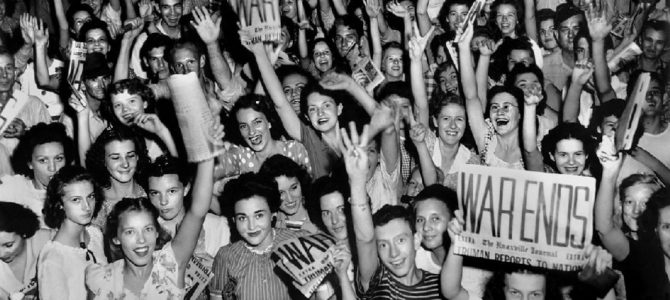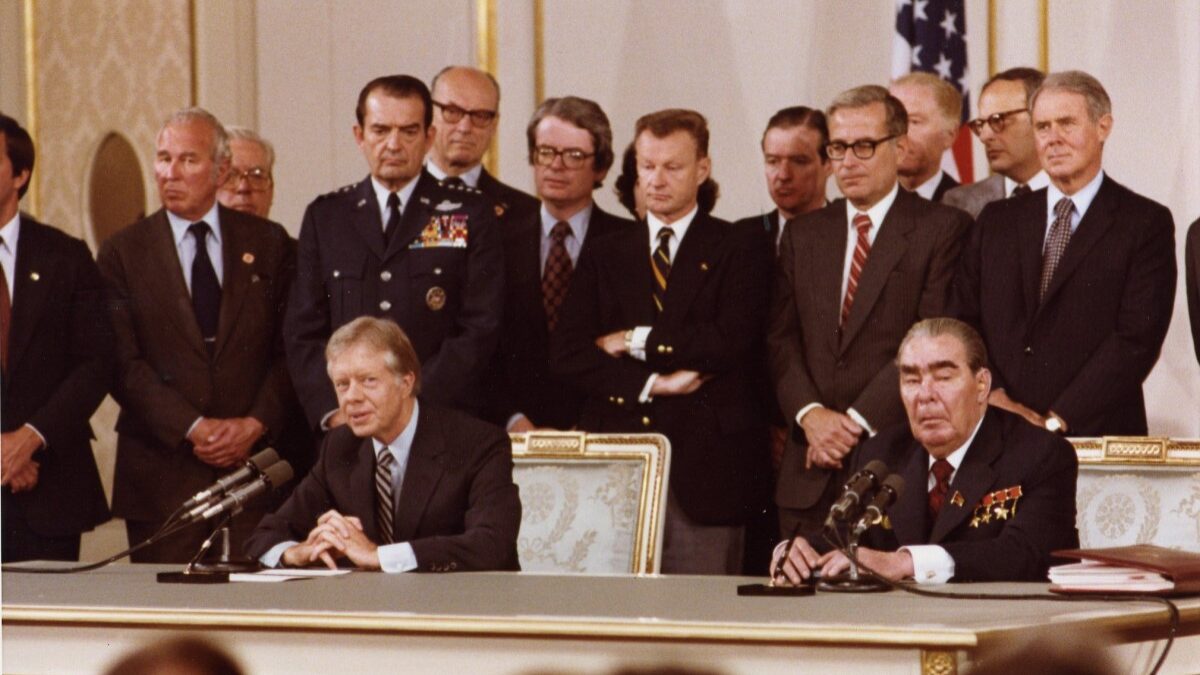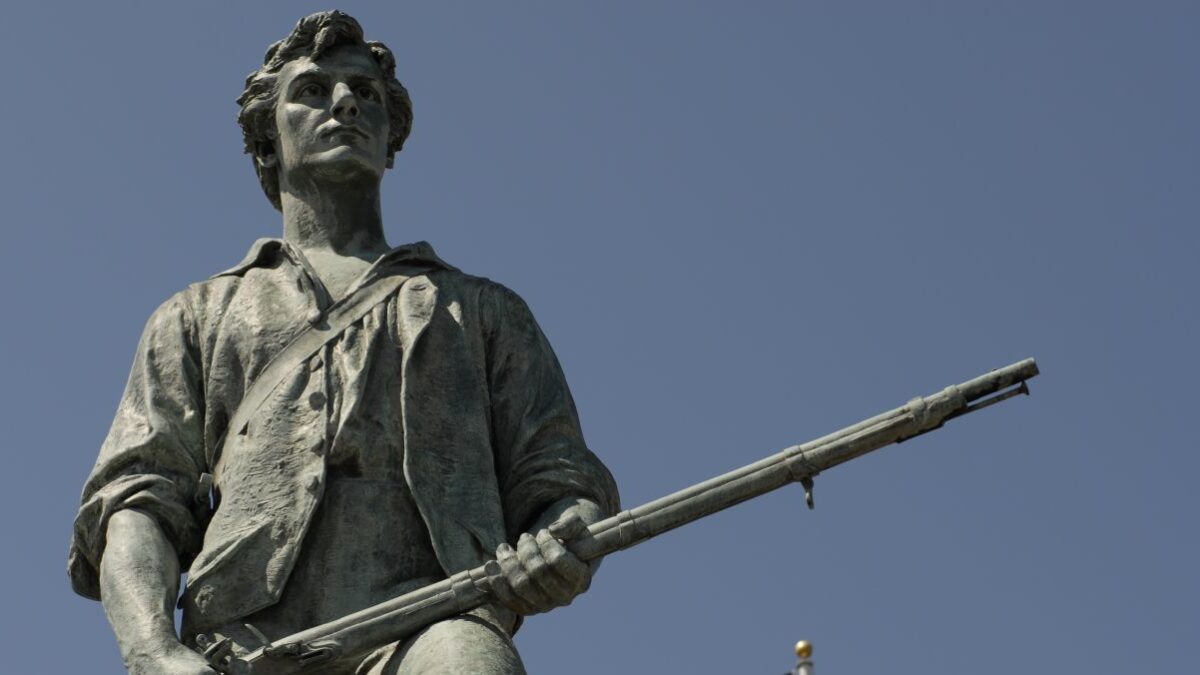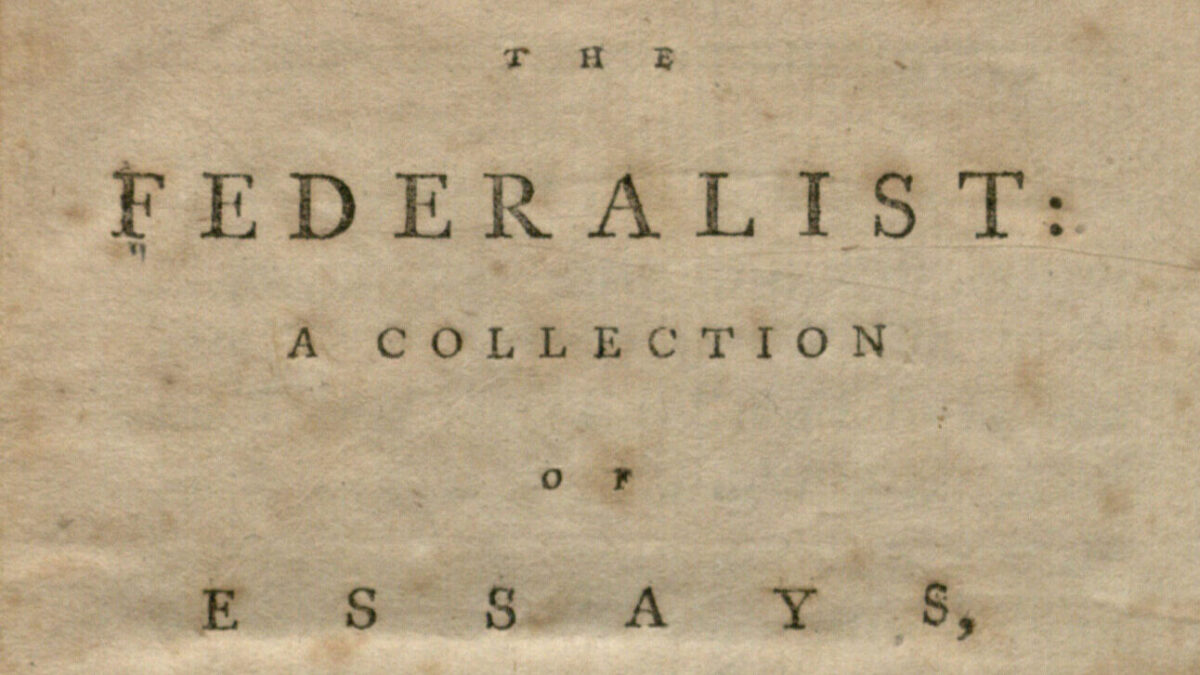
Sixteen million Americans served in the Second World War. About half a million of them are still alive. Unlike the First World War or the Korean War, the mass mobilization of Americans to fight in World War II means it has never faded from the public consciousness, and memorials like the National World War II Memorial in Washington DC ensure that it never will.
Beyond recognizing the sacrifice of our soldiers and sailors, though, we must remember the victory achieved in that conflict. August 1945 saw the end of what is still the deadliest and most destructive war in human history. With the recent rise of fascist violence—and of “anti-fascist” violence with methods indistinguishable from fascism—Americans could use a reminder of our historic victory. To commemorate that triumph, we should reestablish August 14, Victory Day, as a federal holiday.
What the Allies Won
Japan’s surrender, following Germany’s capitulation earlier in the year, effectively marked the end of fascism’s destructive rise and fall. The ideology lingered on here and there—fascism’s anti-intellectual streak left it without the depth of ideological consistency found in communism, and its focus on nationalism meant it was different in every country in which it was tried. But whatever you care to call Franco’s government in Spain or Peron’s in Argentina, fascism as an existential threat to world peace was ended when the Japanese emperor accepted allied demands for unconditional surrender in 1945.
The surrender on what became known as V-J Day did not end all war, nor bury all forms of totalitarianism, some of which continued in the Soviet Union and elsewhere. But in killing fascism, our victory walled off one of the major ideologies of the world. Fascism, and especially Nazism, became unacceptable, and remain so today.
We compare things we do not like to Nazism all too often, but that fascism remains the go-to insult for bad policy or bad people means something. It signals that our fathers’ and grandfathers’ victory over the Axis powers was a complete and total victory. The ideology that began that conflict has been shattered. Fascism is dead.
That is worth commemorating. At the end of the First World War, many nations including the United States made the final day of the war, November 11, a holiday to remember the end of what was then the deadliest conflict in modern history. When that war ended, many believed it also meant the end of war itself, and that having seen its destruction, no nation would again embark on such a deadly conflict. Armistice Day, in the minds of the generation that established it, marked the end of war itself.
Total Victory, if not Total Peace
The hope of a world free from war was quickly dashed. Red revolution in Russia and Japanese aggression in Asia saw total war return in some parts of the globe even before the general conflagration of World War II broke out. The significance of the 1918 armistice was lessened by the realization that war, even modern, total war, was far from dead. In 1954, the U.S. Congress changed the name of Armistice Day to Veterans Day to better honor the veterans of all our wars. That change also implicitly admitted that the peace of 1918 had been less permanent than they once believed.
The federal government did commemorate V-J Day soon after the war’s end, but in calling it Victory Day, their aims were more modest. The bitter lessons of the war and immediate commencement of Cold War conflicts and decolonization struggles let them know that war itself had not been conquered; indeed, they knew it might never be. But there was still a cause for celebration, and there still is. The seven decades since that time have seen war, but never on the scale of World War II. Aggressive wars of conquest have become as taboo as fascism. Superpowers have proxy fights and police actions, but we have never again mobilized the whole nation for total war.
Memories fade. Where once our relatives who served in the fight against fascism were alive to remind us of the horrors wrought by that ideology, more and more Americans now are growing up with knowledge of Nazism that comes only from history books (or worse, from the Internet). World War II is now one of many wars people learn about in school, and perhaps has lost its significance as the history-changing victory that made the world safe for democracy and liberty. If that is one cause of the rise of neo-Nazism, then a holiday dedicated to victory over fascism might be a way to turn back that sentiment.
Allied victory in the Second World War created the world we live in today. It is only right that we should mark the end of the old epoch with a national day of remembrance.
The Timing Is Right
The government erred in establishing Victory Day the first time in its calendar placement. President Harry Truman authorized the first Victory Day by presidential proclamation on August 14, 1946 (because of the difference in the time zones, it was August 15 in Japan and August 14 in the United States when the surrender was announced). The timing was soon shifted, however, to the date the Japanese signed the instrument of surrender: September 2.
In choosing the later date, the government stacked the first Victory Day right next to Labor Day, the first Monday in September, diminishing it in the public’s mind. By 1975, as memories faded, most states and the federal government dropped the holiday, which is today only observed in Rhode Island, where they keep the August observance.
The federal government currently recognizes ten holidays and various states and municipalities add one or two more but, for the most part, we have fewer than one holiday per month. These holidays are not distributed evenly, either. Winter gets a disproportionate share, with Christmas, New Year’s Day, and Martin Luther King Day falling in quick succession.
This leaves two sections of the calendar with long, uninterrupted stretches of a kind of secular ordinary time: no parades, no festivals, no three-day weekends. In spring, we have nothing between Washington’s Birthday in February and Memorial Day at the end of May, but religious occasions like Easter and Passover help break up the tedium. The real doldrums come in the dog days of summer, when we go from July 4 to the first Monday in September with no respite from the work week, even at the time when people would most appreciate a three-day weekend.
Holidays in summer are useful to families, giving them space to plan mini-vacations. A three-day weekend gives parents time to take the kids to grandma’s or the beach without sacrificing a vacation day (for jobs that even have vacation days anymore). They are long enough that, unlike a regular weekend, going someplace does not require spending half the time in transit. A three-day weekend lets us relax a little bit.
Summer holidays share a theme of patriotism, as well. Memorial Day, the Fourth of July, and Labor Day all encourage us to honor different parts of American history. We go to parades, waive the flag, and set off fireworks. The day off gives us the time to travel to a different part of the country, and the summer weather allows us to enjoy the great outdoors. Summer holidays help us celebrate America. Victory Day fits in neatly with this theme.
We Can Handle Another Day Off
Some will say we already have enough holidays and that we should try to get more work, not less, out of the American workforce. But losing one day of work per year is unlikely to adversely affect our economy, especially in summer when many are on vacation already. Schools are closed almost everywhere in mid-August, so children’s educations would not be interrupted. And distinct from religious holidays, all Americans could celebrate Victory Day together.
Unlike some federal holidays, Victory Day would actually be observed by businesses and individuals, just as the other summer holidays are. According to a 2016 study by the Society for Human Resource Management, greater than 90 percent of organizations close for Memorial Day (93 percent), Independence Day (93 percent), and Labor Day (92 percent). Compare that to some other federal holidays like Washington’s Birthday (33 percent), Veterans Day (19 percent), or Columbus Day (13 percent), and the pattern is clear: Americans want holidays in the summer when they will actually use them.
There is also evidence that more hours spent working does not necessarily lead to greater production. As Business Insider’s Chris Weller reported last year, psychology of work expert Anders Ericsson found there are limits to the length of time a person can concentrate on work. Weller also cites studies of test scores among Colorado elementary school students who attended class on a four-day week schedule. The results were increased test scores.
Victory Day would not be so drastic a change as that, but merely shortening a single work week in the part of the year when Americans are most likely to enjoy a short break. In the midst of summer, already the season of patriotic holidays, Americans could and should spare a day to remember our victory over fascism.









